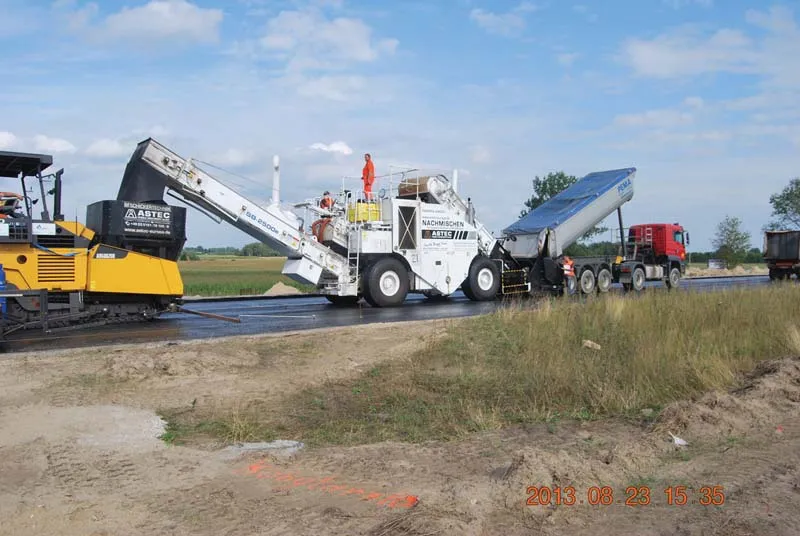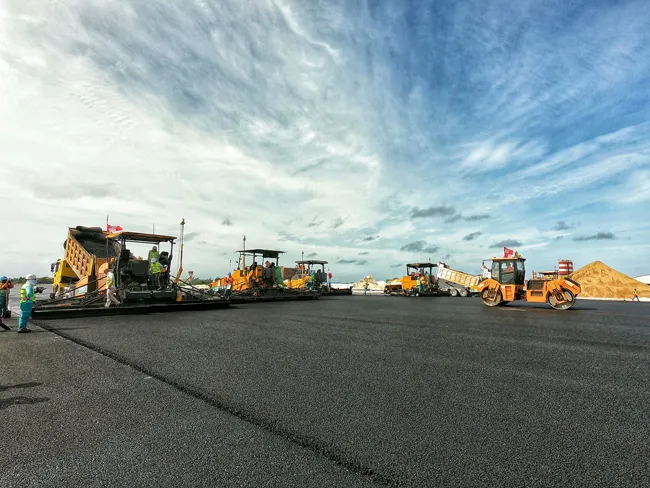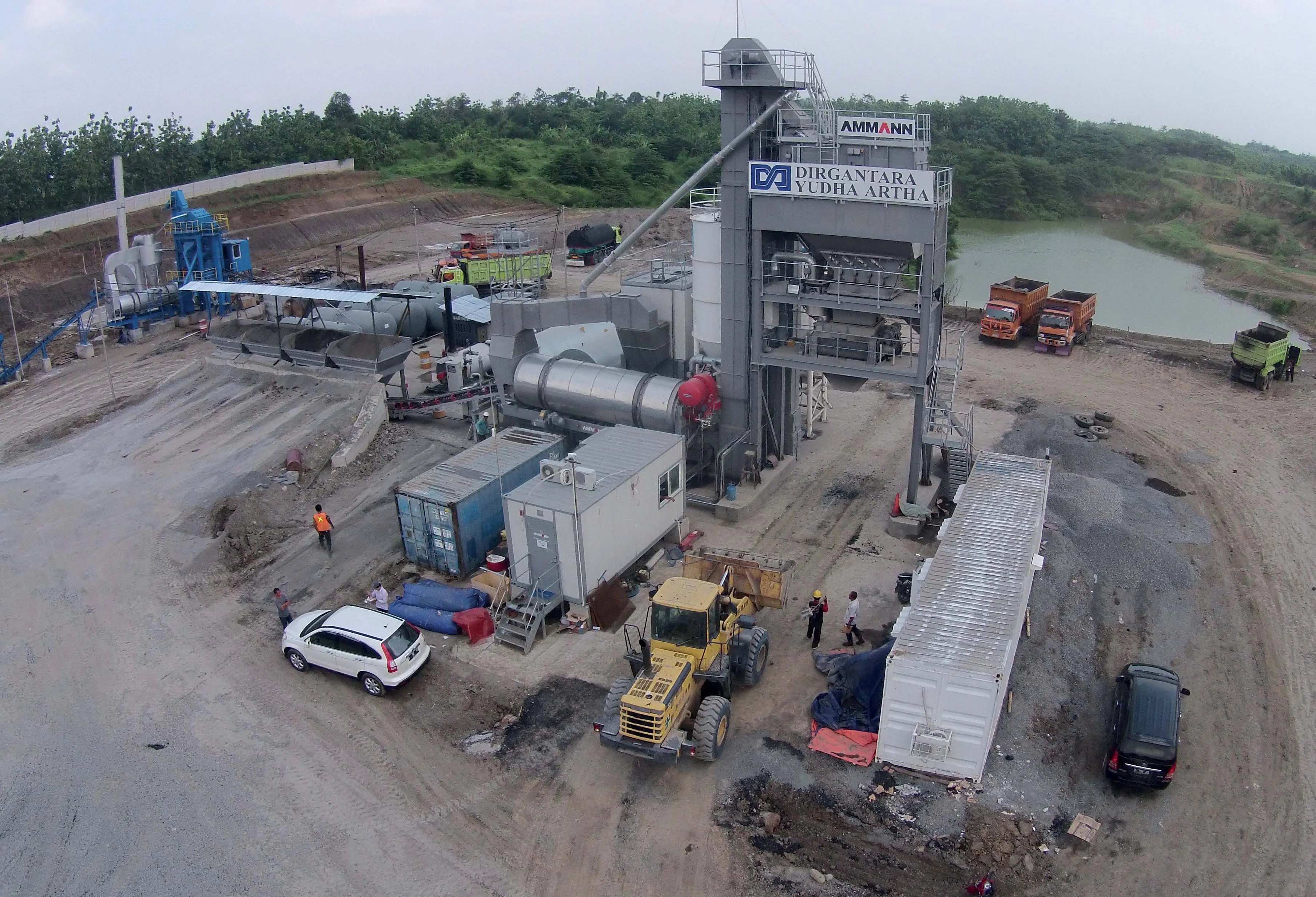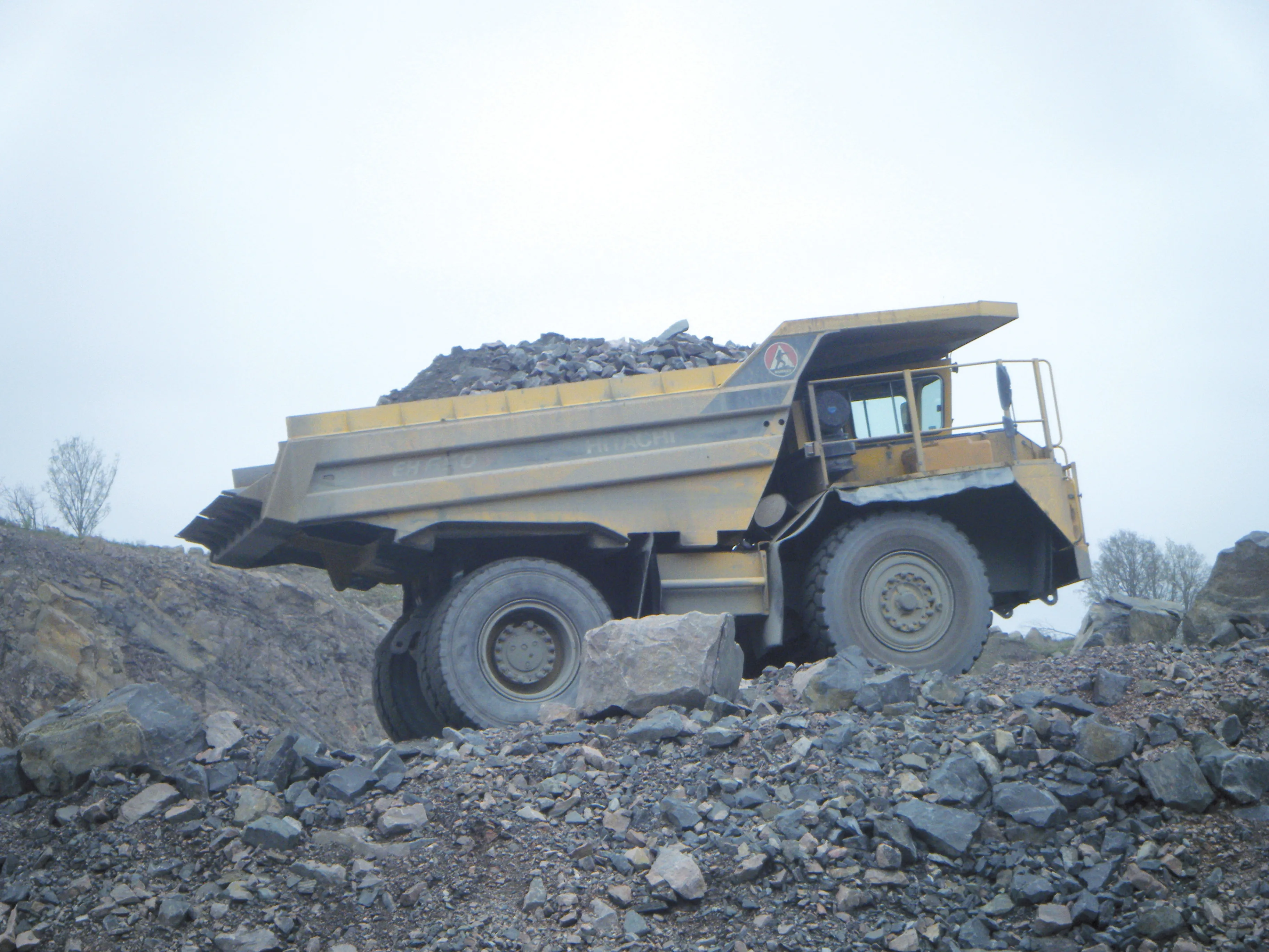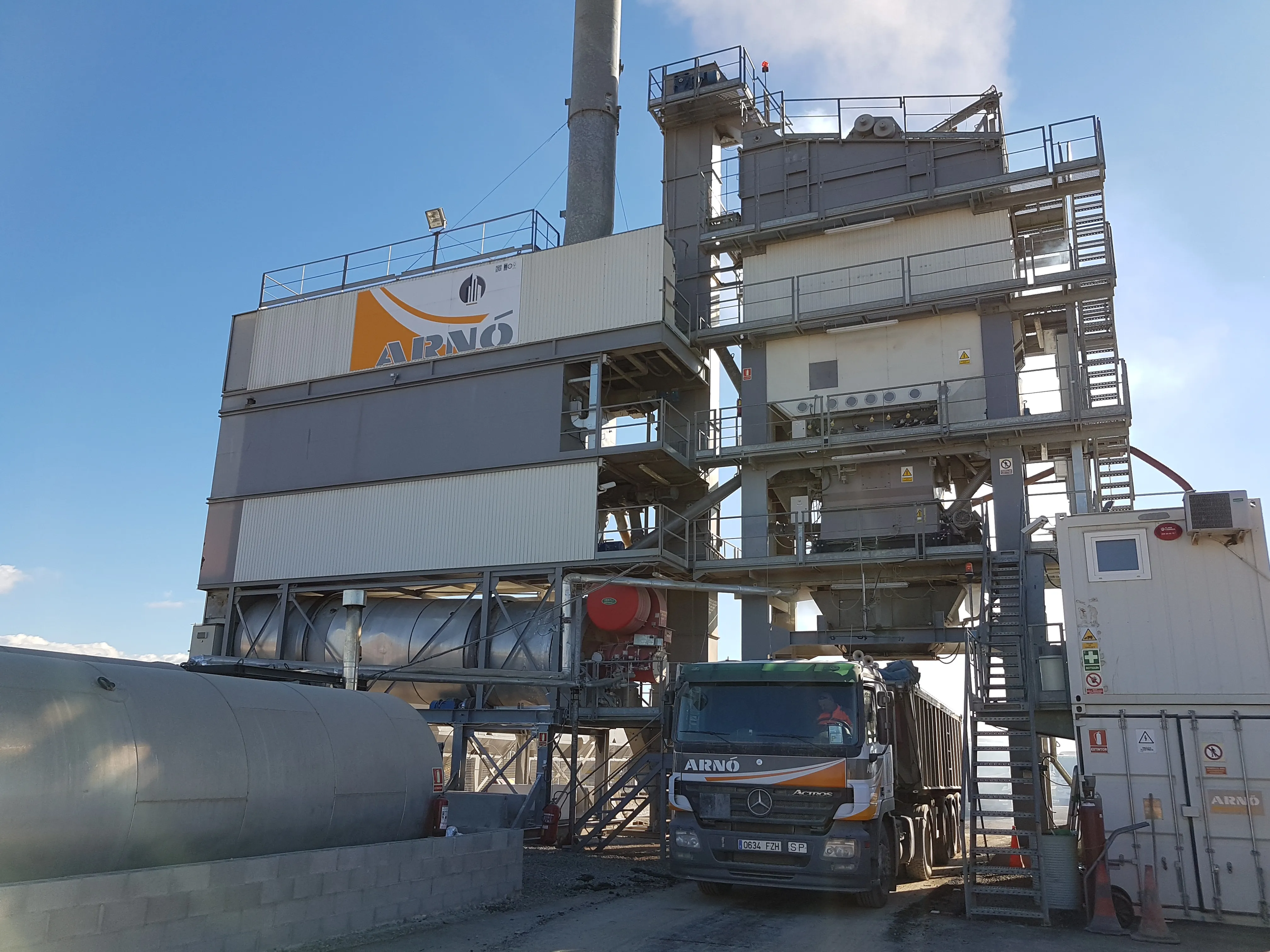
A Spanish contractor has utilised an asphalt plant from
The firm opted to use an Ammann ABT 280 SpeedyBatch plant for the project as this model offered the combination of both mobility and productivity as required. With the short-term nature of the project, a fixed plant would have been unsuitable as the installation was only on a temporary basis, so the mobile unit proved a good fit for the project. Meanwhile as the runway being resurfaced carries the majority of air traffic at the airport, there was a very strict timeframe within which the reconstruction could be carried out, so a high output was necessary. The contractor had to produce a high-quality grade of asphalt 24 hours/day for close to one month and with a maximum output of 280tonnes/hour, the plant delivered around 14,000tonnes of material in all.
Paving and compaction work was carried out to very tight specifications so as to ensure a high-quality surface that could cope with the stresses exerted by aircraft take-offs and landings. Since this job was completed, the mobility of the plant has allowed the contractor to dismantle the unit and move it to another location for the next project. After carrying out the job in Barcelona, the plant was transferred to other jobsites and at Madrid-Barajas Airport, it was used for a very similar job involving runway renewal.


